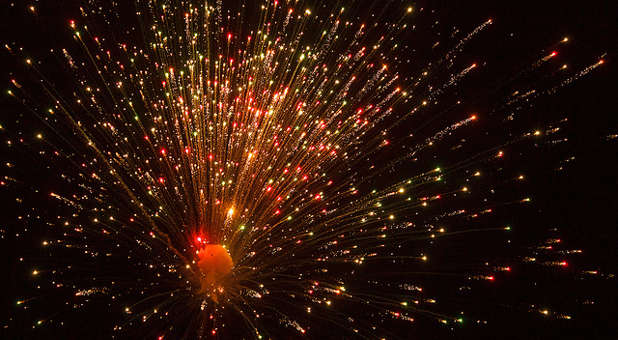12 Tips to Prevent Fireworks-Related Injuries
Fireworks safety is personal to me. When I was in junior high school, one of my classmates had to have his hand amputated because he was holding a firework that exploded too soon, right in my classmate’s hand. He was just 13 years old.
Earlier, when I was a little girl, I was badly burned by a sparkler. For some reason the general public commonly regards sparklers as benign, and therefore safe for children. But they can burn as hot as 2,000 degrees, which can catch clothing on fire.
Fireworks mishaps are at their peak on the Forth of July, but as well all know, people get a bit antsy and start with the fireworks before the 4th and continue for about a month. More than 600 people will be treated on the Fourth of July for fireworks-related injuries. Aside from that spike on the 4th, every day during the first three weeks of July over 200 people are treated in hospital emergency rooms for fireworks-related injuries.
Some of those injuries are fatal. In 2013, the most recent statistics available, there were eight deaths due to fireworks-related injuries. There were more than 11,000 injuries, which was an increase of about 3,000 over the previous year. Many of those injuries resulted in the amputation of fingers and hands. Injuries also affected the head, face, and ears as well as the torso, legs and eyes.
The Consumer Product Safety Commission has issued these tips on how to stay safe around fireworks-related products:
1. Make sure the fireworks you want to buy are legal in your area before buying or using them.
2. Never allow young children to play with or ignite fireworks, including sparklers.
3. Always have an adult nearby to supervise fireworks activities if older children are allowed to handle devices.
4. Avoid buying fireworks that are packaged in brown paper, which is often a sign that the fireworks were made for professional displays and could pose a danger to consumers.
5. Never place any part of your body directly over a fireworks device when lighting the fuse.
6. Back up to a safe distance immediately after lighting fireworks.
7. Keep a bucket of water or a garden hose handy in case of fire or other mishap.
8. Never try to relight or handle malfunctioning fireworks. Soak them with water and throw them away.
9. Never point or throw fireworks at another person.
10. Light fireworks one at a time, then move away from them quickly.
11. Never carry fireworks in a pocket or shoot them off in metal or glass containers.
12. After fireworks complete their burning, douse the spent device with plenty of water from a bucket or hose before discarding the device to prevent a trash fire.
Fireworks-related items can permanently damage your hearing. We should only be exposing our ears to sounds that are below 85 decibels, which is about as loud as someone shouting across a room. Anything above that can damage the inner ear and lead to hearing loss. Fireworks are far above the safe level, at 162 decibels.
The best way to protect your ears from noise damage is to separate yourself from the noise, and if that’s not possible, wear personal protective equipment like noise-cancelling headphones.
The Bureau of Alcohol, Tobacco, Firearms and Explosives encourages the public to report the manufacture or sale of illegal fireworks to your local law enforcement agencies or to the ATF hotline at 888/ATF-BOMB (888/283-2662).
For the original article, visit cbn.com.















































